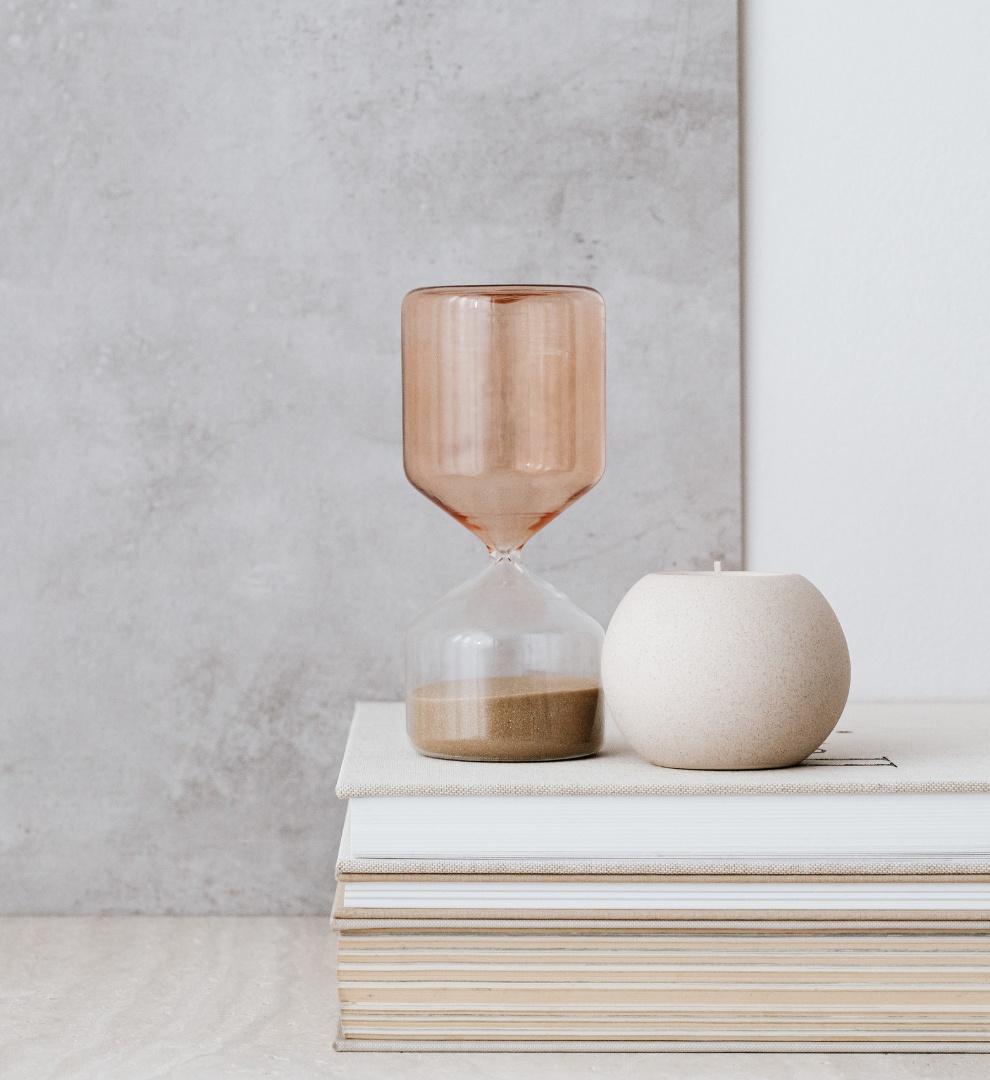Self-Care…What the Heck is it?!

Is it just me or does it seem like you can’t really avoid the topic of self care these days? It’s certainly an important topic, but I think sometimes it can be misunderstood. I’d like to treat this blog post as an opportunity to dive a little deeper into what self-care really means and bust some myths about what self-care “should” look like.
What the heck does “self-care” even mean?!
Quite literally, the act of self care involves caring for oneself. Now you might be thinking, “DUH, I didn’t need to read this blog post to know that”. Stay with me for a moment while I elaborate. Self-care activities include the things we do in order to improve our health in multiple domains of life. These activities range from big events that take time and intention to plan, to small acts we can do on a daily basis. I guess what I’m trying to say is…self-care is SO MUCH MORE than bubble baths and eye masks!
True self-care involves:
Prioritizing your physical and mental health
Paying attention to how your lifestyle impacts your health and mood
Engaging in activities that bring you joy and allow you space to decompress
Preventative care to improve long term health outcomes and decrease chances of burnout
Common myths about self-care:
Popular culture tends to paint a picture of self care as selfish or indulgent. Don’t get me wrong, self-care CAN be luxurious, but it’s not a requirement. Let’s address some of the most common self-care myths!
Myth 1: Self care only involves things that make you feel good.
BUSTED: Sometimes things that are helpful for us in the long-term can feel really uncomfortable in the moment. For instance, setting that boundary with a family member…or leaving the job that offers great financial benefits, but has led to severe burnout and poor mental health outcomes. By confronting these distressing situations head on, you are caring for yourself in the long term.
Myth 2: Self-care is expensive.
BUSTED: You may be surprised to learn that the majority of self care activities don’t actually require a large financial investment. The wellness industry tends to define self-care as memberships to fancy gyms, organic pressed juices, pricey skincare products, and endless spa treatments. While all those things will likely feel great, you can get nearly identical positive impacts from affordable, or even FREE, sources.
Myth 3: Self-care is selfish.
BUSTED: You are NOT selfish for practicing self-care. Let me say that again just in case it didn’t sink in. YOU ARE NOT SELFISH FOR PRACTICING SELF CARE. You’ve probably heard that popular saying, ‘You can’t pour from an empty cup’. Well, self-care allows you to fill your cup so that you can be prepared and present when engaging with others.
The categories of self care:
Now, if your mind goes to spa treatments and yoga classes when you hear self-care, you’re not alone. Self-care has been marketed as something that takes a significant investment of time and finances. The good news is that you don’t need to buy a membership to a boutique fitness studio or spend half your next paycheck on a day filled with facials, pedicures and massages. I mean, you definitely can do that if you want, but it’s not a requirement when it comes to practicing self-care. In fact, self-care can be practiced in many unique ways. Let’s explore these together as we review 6 categories of self-care.
Physical- This type of self care involves what you do to take care of your physical body. After all, you only have one body. Nourishing and respecting its needs will create a foundation for you to flourish upon. Physical self-care can look like:
Fueling your body with yummy, balanced meals and adequate hydration
Moving your body in whatever way feels good to you, whether that be walking, dancing, running, swimming, stretching, strength training, yoga…I think you get it
Taking vitamins, supplements, and any prescription medications that your body may need
Practicing consistency with healthy sleep hygiene
Spending time in nature where you can be exposed to fresh air and sunshine
Emotional- This type of self care involves what you do to better understand and express your emotional experiences. By practicing emotional self-care, you strengthen your ability to manage stress and change behavior patterns that are no longer serving you. Emotional self-care can look like:
Consistent meetings with a licensed mental health professional where you are able to share experiences, receive a non-judgmental perspective, and learn effective coping strategies to manage life stressors
Journaling your thoughts and feelings to gain clarity when feeling “stuck”
Participating in activities or hobbies that give you energy, rather than drain your energy
Setting and maintaining healthy boundaries in your relationships
Environmental– This type of self care might sound like it involves recycling and planting trees, but it’s actually a little different than that. Environmental self-care refers to creating a personal space that works best for your individual needs. This can look like:
Filling your home with fabrics that are soothing to touch. This may include silky soft bed sheets, fluffy pillows, and cozy blankets
Incorporating pleasing sounds into your space. This may include music, white noise, a sound effects app, a crackling wick candle, or binaural beats
Decluttering and organizing your space in a way that helps you to complete daily tasks more effectively
Social– This type of self care involves nurturing your connections to others in order to strengthen relationships and create a sense of belonging…which is an essential human need! Social self-care can look like:
Forming new personal and professional relationships
Limiting time spent with people who negatively impact your mood and energy level
Reaching out to your support system and asking for help when you need it (I know this one is so hard and can be tied to feelings of guilt so I’ll remind you that asking for help does NOT make you weak or selfish. In fact, it makes you self-aware and resourceful!)
Staying connected to people who have played a positive, significant role in your life
Engaging with your community in a way that feels meaningful to you
Financial– This type of self care is often overlooked, but it plays a major role in our mental health. Conversations about personal finances and money management can be seen as ‘taboo’ or ‘inappropriate’. The reality is that being open to these types of discussions leads to an improved sense of confidence in your ability to make decisions about what you want to do with the money you’ve worked so hard to earn. This type of self-care can look like:
Consulting with a professional to learn your options when it comes to investing in your future
Using apps or software programs to track your spending so you can build an awareness of where your money goes each month
Confronting avoidance by dealing with debt directly
Saving money each month, even if it seems like an amount that might be labeled as ‘too small’. Think about it…if you get paid every 2 weeks and you put aside $5 from each paycheck, you will have saved over $500 by the end of the year!
Spiritual– This type of self care does not necessarily need to be connected to religion. It involves connecting with your inner being to find deeper purpose and meaning in your actions. Practicing spiritual self-care often gives you a sense of peace and tranquility. Ways to practice this type of self-care can look like:
Meditation or breathwork
Connecting with community members who share your beliefs at a place of worship
Defining and further exploring your core values
Setting time aside to intentionally practice self-reflection
Okay, cool, but where do I go from here??
I just threw a lot of information your way and you might be asking yourself, “What do I do with all this self-care knowledge I now have?” My suggestion is to set a little time aside and explore how you would practice self-care related to each category. It’s also helpful to reflect at the end of the day, or week, and ask yourself what some of the things/people/places that drained your energy were. This can give you insight into what types of boundaries you may need to set in order to limit exposure to the energy vampires. Vice versa is important to explore as well. Ask yourself what were some of the things/people/places that energized you?. Then, you can recognize where you may want to shift your focus in order to fill your cup. As cheesy as it may sound, investing in a self-care journal or planner can be an incredibly positive experience.
What a week of self care looks like for me:
I certainly won’t be offended if you’ve left by now. In fact, I hope you’re already getting started on creating your own self care plan. But just in case you’ve decided to stick with me, I’m going to have a moment of transparency and share exactly how I practiced self-care this past week. Hint: It’s not all fun and exciting, but each activity listed was done with intention and purpose, which helped me feel regulated and grounded throughout the chaos of the week.
Monday- Connected with family members and friends who I hadn’t seen in a while and got lost in a puzzle.
Tuesday- Finally had a difficult conversation that I was scared to have, but knew that it was necessary.
Wednesday- Packed my lunch and snacks and set out my clothes so I wouldn’t be rushing to leave for work the next morning.
Thursday- Spent an hour running outside in the sunshine and crisp, fresh air before heading to work (My favorite!)
Friday- Got my nails done after work and then wrapped up all the documentation I needed to complete before the weekend so I could fully unplug and be present.
Saturday- Paid bills, took an ‘everything shower’ (IYKYK), and went out to dinner with my husband.
Sunday- Lots of house chores like laundry, dishes, dusting, and vacuuming. Ended the day with a yummy home cooked meal and cuddled up with my pets while I watched a couple episodes of True Detective.
As you can see, self-care isn’t always a relaxing day at the spa, but I promise it’s still worth it!
Reach out today so we can start working on your plan towards self-care 🙂


